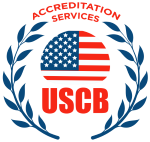Setting the Standard for Excellence
Accreditation services for ISO involve the formal recognition of an organization’s competence to perform specific tasks, such as testing, inspection, or certification, in accordance with international standards.
USCB as an Accredited Certification Body
USCB provides reliable accreditation services and technical assessments for the purposes of notification and registration as well as technical training and rehabilitation of assessors in the different fields, including the testing and calibration laboratories, medical laboratories and certification bodies for products, personnel and Management systems administration, inspection and Halal certification. The USCB is a non-profit and neutral organization seeking to enhance the quality infrastructure
USCB Objectives for your accreditation
Assure
Ensuring that certification bodies, inspection agencies, calibration/testing laboratories and other conformity assessment bodies meet established standards that will enable them to provide a service in an objective and independent manner.
Verifying the scope of an organization’s services.
Verifying the scope of an organization’s services. There are many sector specific standards and because not all organizations perform the same work or have similar capabilities, accreditation bodies can help identify and qualify those that are competent to perform a defined scope of work.
Examine the competency
Examining the competence of the organization’s staff.
Ensuring compliance with codes of ethics/conduct
Ensuring compliance with codes of ethics/conduct when providing assessment services.
Our Function
We are responsible for certifying that companies and organizations comply with the standards set by the International Organization for Standardization (ISO). These bodies play a crucial role in maintaining the integrity and credibility of ISO certifications. Here’s an overview of what we do
Accreditation Services
CERTIFICATION BODIES
( ISO/IEC 17021-1,
ISO/IEC 17065,
ISO/IEC 17024,
ISO 14065
LEARN MORE
Accreditation Services
INPECTION BODIES
ISO /IEC 17020
LEARN MORE
Accreditation Services
LABORATORY ACCREDITATION (ISO/IEC 17025)
LEARN MORE
Accreditation Services
MEDICAL LABORATORY ACCREDITATION (ISO 15189)
LEARN MORE
Statistics and information about Accreditation
Accreditation in the United States is a significant aspect of the industrial landscape, ensuring that institutions meet specific standards of quality and integrity.

Management System

Inspection Bodies

Laboratory Accreditation

Medical Laboratory
CERTIFICATION BODIES
( ISO/IEC 17021-1, ISO/IEC 17065, ISO/IEC 17024,
ISO 14065)
USCB accredits certification bodies against the requirements of ISO/IEC 17021-1, ISO/IEC 17065, ISO/IEC 17024, ISO 140651 for bodies providing audit and certification of management systems to deliver a range of management system certification programmes:
Quality Management Systems Certification (QMS) – (ISO 9001)
Medical Devices Quality Management Systems Certification – (ISO 13485)
Healthcare Services Quality Management Systems Certification – (ISO 9001 and BS EN 15224)
Environmental Management Systems Certification (EMS) – (ISO 14001)
Food Safety Management Systems Certification (FSMS) – (ISO 22000)
Information Security Management Systems Certification (ISMS) – (ISO/IEC 27001)
Business Continuity Management Systems Certification (BCM) – (ISO 22301)
Health and Safety Management Systems Certification (H&SMS) – (ISO 45001)
Information Technology Service Management System Certification (ITSMS) – (ISO/IEC 20000-1)
Supply Chain Security Management Systems Certification (SCSMS) – (ISO 28000)
Energy Management Systems Certification (EnMS) – (ISO 50001)
Asset Management Systems Certification (AMS) – (ISO 55001)
Management Systems for Quality of Private Security Company Operations (PSC) – (ANSI/ASIS PSC.1 and ISO 18788)
Fire Risk Management Systems Certification (FRMS) – (PAS 7)
Anti-Bribery Management Systems Certification (ABMS) – (ISO 37001)
RELATED INFORMATION
What is ISO/IEC 17021?
ISO/IEC 17021 is a standard that was created for assessing certification bodies to ensure that they are competent and that they conform to all types of management systems.
Verifying the scope of an organization’s services.
Verifying the scope of an organization’s services. There are many sector specific standards and because not all organizations perform the same work or have similar capabilities, accreditation bodies can help identify and qualify those that are competent to perform a defined scope of work.
History of 17021
The original ISO/IEC 17021 was published in 2006. According to this first publication, accredited IAF MLA management system certification bodies were given two years from the first date of publication to conform to the standard. In 2011, there was a revision that was focused on competence, and all CB were given two years to conform to the new standard.
Related 17021 Standards
ISO/IEC 17021 was designed for all types of management systems, along with this standard, several other versions of 17021 have been published to meet the needs of specific management systems.
Including:
ISO/IEC TS 17021-2 for environmental management systems
ISO/IEC TS 17021-3 for quality management systems
ISO/IEC TS 17021-4 for event sustainability management systems
ISO/IEC TS 17021-5 for asset management systems
ISO/IEC TS 17021-6 for business continuity management systems
ISO/IEC TS 17021-7 for road traffic safety management systems
ISO/IEC TS 17021-8 (under construction) for sustainable development in communities management systems
ISO/IEC TS 17021-9 for anti-bribery management systems
ISO/IEC TS 17021-10 for occupational health and safety management systems
INSPECTION BODIES
USCB accreditation to ISO/IEC 17020 allows an organization to demonstrate integrity, reliability, and technical competence as well as compliance internationally recognized good practices.
- Building and Construction Products
- Food Inspection (food safety, food hygiene, manufacturing and processed practices, cargo inspection, animal welfare, labelling)
- Health and Social Care
- Fire Protection Systems
- Environmental Technology VerificationEngineering Inspection (including Pressure Systems, lifting equipment/Hoists, electrical installations, power presses, local exhaust ventilation, cargo / pre-shipment inspection, manufacture of boilers / pressure vessels, welding inspections, oil and gas metering)
RELATED INFORMATION
What is ISO/IEC 17020?
ISO/IEC 17020:2012 specifies requirements for the competence of bodies performing inspection and for the impartiality and consistency of their inspection activities.
Benefits of ISO/IEC 17020 Accreditation
Accreditation to ISO/IEC 17020, Conformity assessment – Requirements for the operation of various types of bodies performing inspection, is gaining momentum in industries around the globe. The broad definition of inspection in the standard allows great flexibility in application from systems to services and raw material to finished products.
ISO/IEC 17020 incorporates same level of requirements for the organizational quality management system as ISO 9001 and ISO/IEC 17000 series standards such as ISO/IEC 17021-1, Conformity assessment – Requirements for bodies providing audit and certification of management systems, and ISO/IEC 17065, Conformity assessment – Requirements for bodies certifying products, processes and services. ISO/IEC 17020, however, puts greater emphasis on organizational ability to manage impartiality and conflicts of interest as well as the technical competence of people, inspection processes, and equipment.
Accredited inspection provides assurance of technically competent service and consistently reliable results, reducing costs and lowering risks. It is key in demonstrating that products, equipment, structures, and systems meet required specifications. Governments and industries around the world are increasingly requiring use of accredited inspection services.
History of 17021
The original ISO/IEC 17021 was published in 2006. According to this first publication, accredited IAF MLA management system certification bodies were given two years from the first date of publication to conform to the standard. In 2011, there was a revision that was focused on competence, and all CB were given two years to conform to the new standard.
More about 17020 Standards
Thorough examining a product (design & quality), service, process or plant is called “Inspection”, which is also used to determine the conformity of the object against given requirements. ISO/IEC 17020:2012 is used to improve quality and accuracy of examination for Inspection Bodies.
The Professionals doing the inspection work are called inspectors and in wider term “Inspection Bodies”. The Accreditation Scheme for these Bodies provides official recognition of the integrity and reliability of an inspection body’s services. Proper implementation of ISO 17020 is very important for overall maintenance of machinery, plant, tools, infrastructure, processes and system itself.
Inspection Bodies Accreditation, monitors technical competence of quality management system and provides guidelines to achieve consistent and accurate inspection processes.
LABORATORY ACCREDITATION(ISO/IEC 17025)
USCB provides ISO/IEC 17025 accreditation to organisations performing various types of testing and calibration. USCB operates ISO/IEC 17025 accreditation in the following fields:
- Biological
- Calibration
- Chemical
- Construction and Construction Products
- Electrical
- Environmental
- Fire and Textiles
- Forensics
- Geotechnical
- Renewable Energy
RELATED INFORMATION
What is ISO/IEC 17020?
ISO/IEC 17020:2012 specifies requirements for the competence of bodies performing inspection and for the impartiality and consistency of their inspection activities.
Benefits of ISO/IEC 17020 Accreditation
Accreditation to ISO/IEC 17020, Conformity assessment – Requirements for the operation of various types of bodies performing inspection, is gaining momentum in industries around the globe. The broad definition of inspection in the standard allows great flexibility in application from systems to services and raw material to finished products.
ISO/IEC 17020 incorporates same level of requirements for the organizational quality management system as ISO 9001 and ISO/IEC 17000 series standards such as ISO/IEC 17021-1, Conformity assessment – Requirements for bodies providing audit and certification of management systems, and ISO/IEC 17065, Conformity assessment – Requirements for bodies certifying products, processes and services. ISO/IEC 17020, however, puts greater emphasis on organizational ability to manage impartiality and conflicts of interest as well as the technical competence of people, inspection processes, and equipment.
Accredited inspection provides assurance of technically competent service and consistently reliable results, reducing costs and lowering risks. It is key in demonstrating that products, equipment, structures, and systems meet required specifications. Governments and industries around the world are increasingly requiring use of accredited inspection services.
History of 17021
The original ISO/IEC 17021 was published in 2006. According to this first publication, accredited IAF MLA management system certification bodies were given two years from the first date of publication to conform to the standard. In 2011, there was a revision that was focused on competence, and all CB were given two years to conform to the new standard.
More about 17020 Standards
Thorough examining a product (design & quality), service, process or plant is called “Inspection”, which is also used to determine the conformity of the object against given requirements. ISO/IEC 17020:2012 is used to improve quality and accuracy of examination for Inspection Bodies.
The Professionals doing the inspection work are called inspectors and in wider term “Inspection Bodies”. The Accreditation Scheme for these Bodies provides official recognition of the integrity and reliability of an inspection body’s services. Proper implementation of ISO 17020 is very important for overall maintenance of machinery, plant, tools, infrastructure, processes and system itself.
Inspection Bodies Accreditation, monitors technical competence of quality management system and provides guidelines to achieve consistent and accurate inspection processes.
MEDICAL LABORATORY ACCREDITATION (ISO 15189)
USCB provides accreditation to the internationally recognised standard ISO 15189 Medical Laboratories – requirements for quality and competence.
UKAS accreditation covers the following disciplines:
- Clinical Biochemistry – Toxicology – Endocrinology
- Haematology – Blood Transfusion
- Microbiology – Virology – Parasitology – Serology – Mycology
- Histopathology – Cytology – Mortuaries
- Immunology
- Genetics
- Andrology
- Histocompatibility & Immunogenetics
RELATED INFORMATION
What is ISO/IEC 15189?
ISO 15189 Medical laboratories — Requirements for quality and competence is an international standard that specifies the quality management system requirements particular to medical laboratories.
Benefits of ISO/IEC 17020 Accreditation
Accreditation to ISO/IEC 17020, Conformity assessment – Requirements for the operation of various types of bodies performing inspection, is gaining momentum in industries around the globe. The broad definition of inspection in the standard allows great flexibility in application from systems to services and raw material to finished products.
ISO/IEC 17020 incorporates same level of requirements for the organizational quality management system as ISO 9001 and ISO/IEC 17000 series standards such as ISO/IEC 17021-1, Conformity assessment – Requirements for bodies providing audit and certification of management systems, and ISO/IEC 17065, Conformity assessment – Requirements for bodies certifying products, processes and services. ISO/IEC 17020, however, puts greater emphasis on organizational ability to manage impartiality and conflicts of interest as well as the technical competence of people, inspection processes, and equipment.
Accredited inspection provides assurance of technically competent service and consistently reliable results, reducing costs and lowering risks. It is key in demonstrating that products, equipment, structures, and systems meet required specifications. Governments and industries around the world are increasingly requiring use of accredited inspection services.
Benefits of ISO/IEC 15189 Accreditation
Accreditation to this standard is patient-focused, impartial, objective, and operates within a good system. It provides many benefits such as those detailed below:
- For Healthcare Regulators
- provides an independent assurance of quality and safety,
- provides a mechanism for measuring quality improvement,
- supports consistency in the quality of care,
- encourages innovation
- For Patients
- consistency in the quality of care,
- up-to-date technologies and its procedures and techniques reflect current best practice,
- Staff providing the service is competent to undertake the tasks they perform.
- For Medical Laboratories
- provides an opportunity for external perspectives on the laboratory�s practice,
- can prevent the unnecessary duplication of information gathering on performance often required by regulatory bodies,
- encourages the sharing of best practice,
- reduces risk, and
- Provides international recognition.
More aboutt the ISO/IEC 15189
ISO 15189 standard for Medical Laboratories – Particular requirements for quality and competence – covers the essential elements for medical laboratories to demonstrate the quality and competence of their services, as well as to consistently deliver technically valid test or “examination” results as they are known in the standard. The standard, which has been developed with strong involvement from the medical, scientific and clinical community, is for the use of medical laboratories in developing their management systems and maintaining their own competence; and for accreditation bodies to confirm or recognize the competence of these laboratories through accreditation. Medical laboratory services are essential in the diagnosis and assessment of the health of patients. Their services encompass arrangements for requisition, patient preparation, patient identification, collection of samples, transportation, storage, processing and examination of clinical samples, together with subsequent result validation, interpretation, reporting and advice. Medical laboratory services should therefore meet the needs of all patients, clinical personnel responsible for patient care and any other interested parties. The laboratory’s aim is not only to provide accurate results, but to do so for the right patient within a meaningful timeframe as regards clinical management, using appropriate laboratory procedures and with a respect for ethics, confidentiality and the safety of the patient. At present, the 2012 version is in the implementation. The standard mainly focuses on quality system requirements and technical requirements covering the quality assurance practices. This standard is applicable to mainly following types of laboratories:
- Clinical Biochemistry
- Clinical Pathology
- Haematology and Immunohaematology
- Microbiology and Serology
- Histopathology
- Cytopathology
- Genetics
- Nuclear medicine (in-vitro tests only)
Technical Requirements for ISO 15189 System
ISO 15189 standard for Medical Laboratories – Particular requirements for quality and competence – covers the essential elements for medical laboratories to demonstrate the quality and competence of their services, as well as to consistently deliver technically valid test or “examination” results as they are known in the standard. The standard, which has been developed with strong involvement from the medical, scientific and clinical community, is for the use of medical laboratories in developing their management systems and maintaining their own competence; and for accreditation bodies to confirm or recognize the competence of these laboratories through accreditation. Medical laboratory services are essential in the diagnosis and assessment of the health of patients. Their services encompass arrangements for requisition, patient preparation, patient identification, collection of samples, transportation, storage, processing and examination of clinical samples, together with subsequent result validation, interpretation, reporting and advice. Medical laboratory services should therefore meet the needs of all patients, clinical personnel responsible for patient care and any other interested parties. The laboratory’s aim is not only to provide accurate results, but to do so for the right patient within a meaningful timeframe as regards clinical management, using appropriate laboratory procedures and with a respect for ethics, confidentiality and the safety of the patient. At present, the 2012 version is in the implementation. The standard mainly focuses on quality system requirements and technical requirements covering the quality assurance practices. This standard is applicable to mainly following types of laboratories:
Clinical Biochemistry
Clinical Pathology
Haematology and Immunohaematology
Microbiology and Serology
Histopathology
Cytopathology
Genetics
Nuclear medicine (in-vitro tests only)
ISO 15189:2012 Certification Consultancy
Punyam.com, a leading ISO and accreditation consultant in India, provides consultancy for ISO 15189:2012 Certification. The ISO 15189 certificate for accreditation is issued by accreditation bodies, such as NABL for India. and others. The ISO 15189:2012 certificate is issued for the period of 2 years after successful completion of pre-assessment and registration (final) assessment. Surveillance audit is conducted by the accreditation body after 1 year. Upon completion of 2 years, renewal audit for ISO 15189 systems is done and certificate is issued for 2 more years. After that, at every 2 years the renewal audit for ISO15189 accreditation is conducted without any surveillance.



